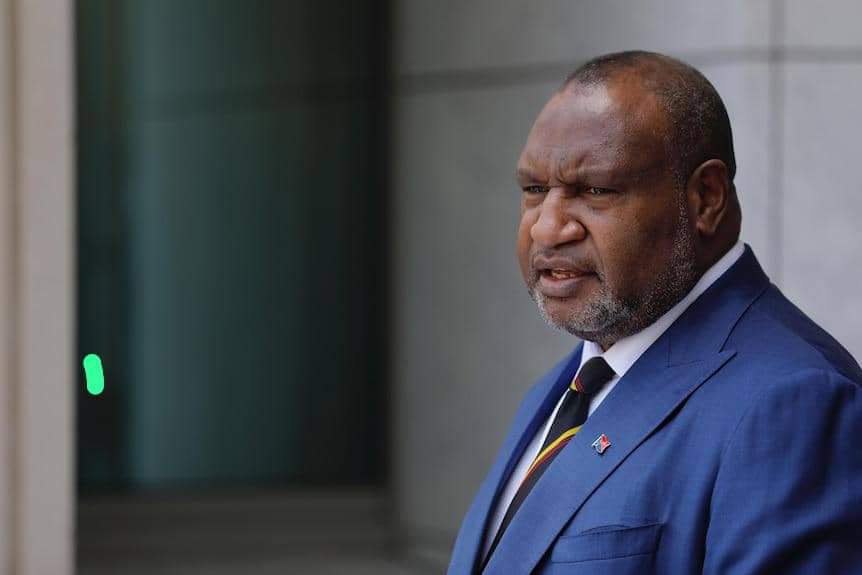Prime Minister James Marape announced plans to deliver a comprehensive report in Parliament when it resumes next month, on how his government has been alleviating the economic burden from Papua New Guineans across the country.
“Next month May will make it my fifth year in office.
“When Parliament resumes then, I will present a statistical report to the country that will cover the economy, health, education, infrastructure, law & order, and everything we have done so far.”
Marape affirmed that his government remains tirelessly committed to easing the struggles of the populace and ensuring the country’s economic stability.
“We do not talk about all we do all the time, but this government is constantly working to help alleviate the burden on our people and keep the economy of the country afloat.”
Interventions include disaster relief assistance, education school fee assistance, and boosting the agriculture and mining sectors.
This is despite challenges placed on the Marape-Rosso government as it navigates through COVID-19-induced local and international economic contractions, and the Ukraine-Russia war and its effects on inflation.
“I want to give assurance to our people that in these hard economic times, we are doing our absolute best to spread the development Kina right across the country and keep the economy afloat.”
“Our small import-dependent economy has gone through a lot of stress from internal issues and global ones as well.
“As a people-focused government, we are conscious of all these, and putting in our absolute best and making interventions where it matters most.”
Marape highlighted recent instances of government action, citing responses to both natural disasters in East Sepik and Chimbu, and man-made crises like the January 10 mayhem.
He said the government has also been swift in providing relief and support, collaborating closely with affected provinces and districts.
Furthermore, Marape said ongoing interventions in education, including paying a significant portion of secondary school fees, reducing project fees in public schools, and offering financial assistance through scholarship and loan programs for higher education (HECAS/TESAS/HELP) will continue.
“Our other intervention of lifting the non-paying threshold to K20,000 is the highest any government has made (and) last time, in as many years, has been lingering at K12,500.”
Marape said the government is giving out money for district development projects.
“We are currently disbursing District Services Improvement Program (DSIP) funds at 40 percent mark to ensure development runs.”
“Our government, on record, has given more incentives to more people in tough times than any other governments of the past.
“We are doing our absolute best to make sure that we help.”
He further says with the full restoration of the board and management of the Central Bank, the Government expects a better interplay between its Fiscal and Monetary policies to keep the economy in better check and balance as the country progresses this year.
“In the meantime, Porgera has opened (and) we are working on Pasca; we are working on Papua and P’nyang LNG projects; we are working on Wafi Golpu.”
“These will be the impetus for the next wave of growth as we continue to push agriculture and others in the renewable sector forward.”

